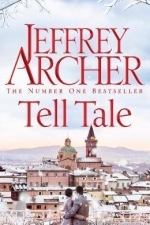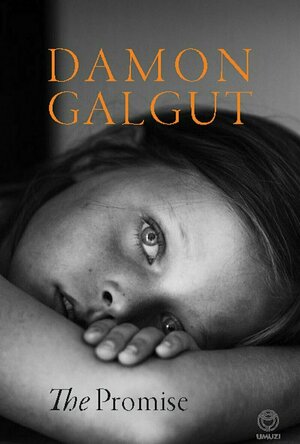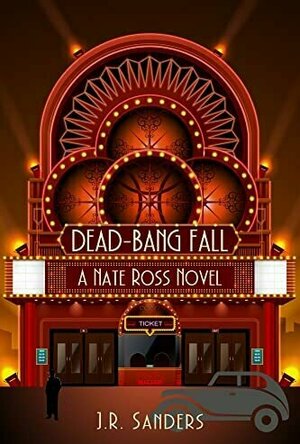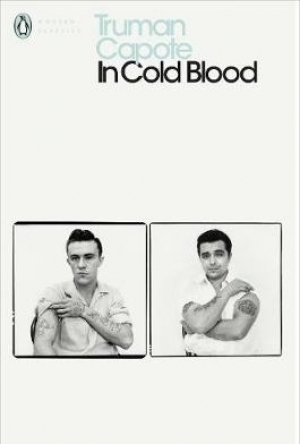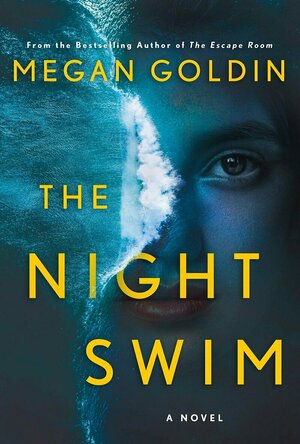
The Night Swim: A Novel
Book
After the first season of her true crime podcast became an overnight sensation and set an innocent...
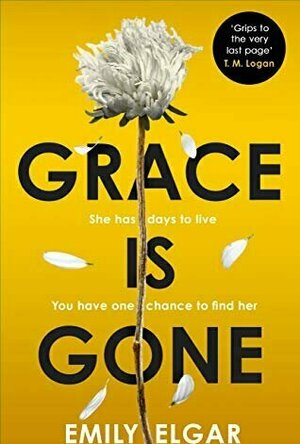
Grace is Gone
Book
Intriguing characters and a storyline that suddenly throws everything in the air, I was completely...
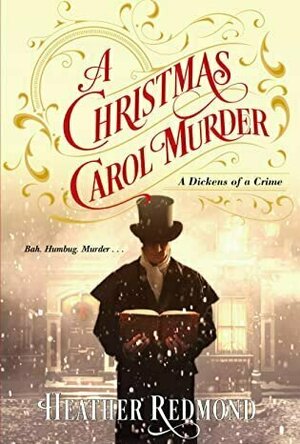
A Christmas Carol Murder (A Dickens of a Crime #3)
Book
The latest novel from Heather Redmond’s acclaimed mystery series finds young Charles Dickens...
Historical Mystery
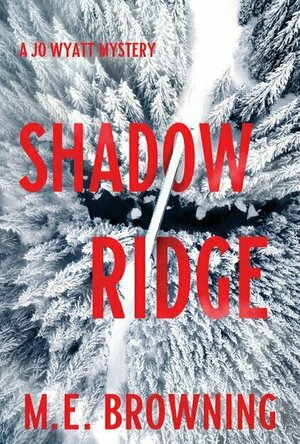
Shadow Ridge (Jo Wyatt Mystery #1)
Book
Death is one click away when a string of murders rocks a small Colorado town in the first...
Mystery Crime Police Procedural
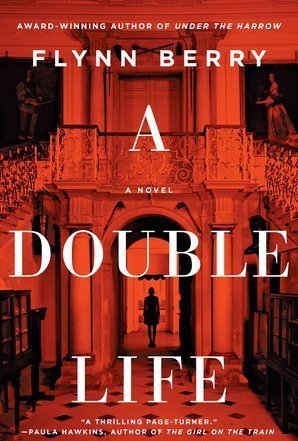
A Double Life
Book
“A thrilling page-turner.” —Paula Hawkins, author of The Girl on the Train “Breathtaking...
ClareR (6062 KP) rated The Promise in Books
Oct 12, 2021
As time moves on, Apartheid ends, Nelson Mandela becomes President. But does life change that much for the Swarts? Do they uphold the promise made at the beginning of the book, as overheard by the youngest daughter when her mother was dying? Laws may change, but do people’s attitudes?
This is a disjointed family: there doesn’t seem to be a single close relationship between any of them. They all seem to be selfish people who resent the new South Africa, as they lose social standing, money, and are directly affected by the rise in crime.
It was a thoroughly engrossing book, and I lost myself in it every time I sat down to read. It’s a really good, character-driven novel. Now to wait and see if it wins!!
Mark @ Carstairs Considers (2476 KP) rated Dead-Bang Fall in Books
Feb 2, 2023 (Updated Feb 2, 2023)
This is a great trip back to 1939 Hollywood, and the setting comes to life. As a throwback PI novel, it does start out with a little too much jargon of the time, but fortunately, that calms down as we get into the story. It does have a bit more violence and foul language than in one of the cozies I read, but it doesn’t go overboard. The plot is strong with quite a few twists, compilations, and half-truths before we reach the fun climax. Nate much face his past here, and we are reminded about enough to make the growth real. Meanwhile, we get a couple of fun returning characters and a batch of great new ones. If you enjoy PI novels set in this era, this is one to check out.
Louise (64 KP) rated The Unseeing in Books
Jul 2, 2018
The year is 1837 and Sarah Gale is sentenced to be hung, she is believed to have aid and abet James Greenacre in the death of Hannah Brown. Sarah Gale was having an on/off relationship with Greenacre and living with him in his home until he met Hannah. Hannah Brown was a spinster with a bit of money and business’s in her possession,until her body parts were found randomly around London.Greenacre a conniving man that he is only wanted Hannah for her money and threw Sarah out a few days before Christmas. A few days after Christmas Hannah Brown is gone and Sarah Gale is back in Greenacre’s bed. Sarah is adamant that she knows nothing about the disappearance or death of Hannah Brown, but no-one believes her.
Sarah Gale and a Women’s institute have requested Sarah to be pardoned as she is to be hung but is adamant she knows nothing. Edmund Fleetwood has been assigned the case, his job is to see if she will talk or if there is any new evidence. This is one of the most spoken about cases of the time and this could be the career break that Edmund needs, however Sarah Gale is still adamant that she knows nothing. Can this meek, pale women really be involved in a murder?
This book was amazing, I felt like I had been transported to London in 1837. The writing was so atmospheric, the descriptions of the sounds, the streets and the way the characters spoke just blew me away, and it was consistent throughout the book. The Unseeing is a slow burn book that drip feeds you information slowly and you start piecing it together like a jigsaw puzzle. I was definitely hooked and needed to know how Hannah had come to be in pieces around London and what was going to happen to Sarah. There is a twist and I didn’t see it coming whatsoever and was left shocked for some time.
This book is based on a true crime that happened in 1837 and is known as the Edgeware Murder. Sarah Gale and John Greenacre are the names of the actual people involved and the court scripts can be seen at the Old Bailey website. You can definitely tell that the Mazzola had knowledge of the justice system as it was very well researched. I loved that Mazzola managed to make a fictional book out of a true crime and it makes it even more intriguing to read. It does make you think of how the justice system failed a lot of people back in Victorian times.
I will definitely be reading anything else Anna Mazzola release and recommend this book you are interested true crime and historical fiction.
I rated this 4 out of 5 stars
Hadley (567 KP) rated In Cold Blood: A True Account of a Multiple Murder and Its Consequences in Books
Aug 2, 2020
The novel, which was published in 1965, is an eyewitness account of Capote's visitation to the scene of the murder as well as meetings with the murderers and townspeople- - - a retelling of the crime and aftermath, mostly from the eyes of those affected, by hundreds of hours of interviews and interrogations. The novel, ultimately, was the end of Capote which led him to alcoholism that took his life in 1984.
Like most small-town murders, a tension between residences is created when a well-known and well-liked family of four is brutally murdered, and everyone begins to point a finger at the other: "But afterward the townspeople, theretofore sufficiently unfearful of each other to seldom trouble to lock their doors, found fantasy re-creating them over and again - - - those somber explosions that stimulated fires of mistrust in the glare of which many old neighbors viewed each other strangely, and as strangers." Fortunately, the KBI (Kansas Bureau of Investigation) didn't allow these accusations to keep them from finding the real killers.
" 'Deep down,' Perry continued, 'way, way rock bottom, I never thought I could do it. A thing like that.' " Perry Smith, one of the murderers, confesses to his cohort and partner-in-crime, Richard Hickock, about murdering the Clutter family. "Presently, he said, 'Know what it is that really bugs me? About that other thing[Clutter murder]? It's just I don't believe it- - - that anyone can get away with a thing like that.' And he suspected that Dick [Richard] didn't, either. For Dick was at least partly inhabited by Perry's mystical-moral apprehensions. Thus: 'Now, just shut up!' "
Capote writes clearly of the impact that Smith's and Hickock's past may have played leading up to the murders, mostly focusing on Smith's traumatic childhood. During the trial portion of the book, a psychologist is brought in to point out how the two murderers may not have been responsible for their actions due-to instances in their past - - - a horrific car crash in Hickock's that left him with a lop-sided face and black-out spells, as well as Smith being physically and emotional abused by his alcoholic mother and father. In exploring these traumas, In Cold Blood leaves the impression that these two men were merely ticking time bombs and that the Clutter family, unfortunately, had to pay for it.
The trauma shared by Hickock and Smith help to shape the two murderers into actual human beings rather than monsters throughout the novel: one scene, where we get to read a letter to Smith from his last living sister, readers get to see how he was perceived by his family members, as his sister goes on to degrade him to the maturity level of a child and that she is above him because of that- - -but she also reveals her jealousy of their father loving him more than he ever loved her (despite the excessive abuse). A close friend of Smith's tells him to be careful writing her anymore because he believes that: 'they can only serve to increase your already dangerous anti-social instincts.'
Part of the narrative, too, is the KBI agent in-charge of the Clutter murder, Alvin Dewey: One day while visiting Holcomb's well-known cafe (Hartman's) where Dewey is told he looks awful from weight loss and fatigue - - - Dewey recalls that he had spent: 'two wearying and wasted days trying to trace that phantom pair, the Mexicans sworn by Paul Helm to have visited Mr. Clutter on the eve of the murders.' And then he gets heckled by a local, who wants to know why he hasn't found the people responsible yet,but Dewey simply smiles and walks away, having put up with numerous people being angry that the murders were taking so long to solve.
But it wasn't footwork that got the pair arrested, it was an old cellmate who had given Hickock the idea that there was $10,000 in a safe at the Clutter farm that came forward: (read this on my blog because I had to cut it out since my review was too long!).
Meanwhile, readers also get to experience Hickock and Smith's troubles as they are on the run after the murders which is done masterfully by Capote. And although one would assume that the killers would stay as far away from Kansas as possible, the two end up back there, only to miraculously get out before the police can catch up with them. The pair decide to head to Florida, where, on December 19, 1959, an entire family was murdered in the exact same way as the Clutters; Hickock and Smith both adamantly denied that they were involved with it - - - and back in 2012- - - Hickock and Smith's bodies were exhumed to compare their DNA with a profile found on one of the victim's clothing: they were not a match. The case remains unsolved til this day.
" Presently he[Smith] came across an inner-page story that won his entire attention. It concerned murder, the slaying of a Florida family, a Mr. and Mrs. Clifford Walker, their four-year-old son, and their two-year-old daughter. Each of the victims, though not bound or gagged, had been shot through the head with a .22 weapon. The crime, clueless and apparently motiveless, had taken place Saturday night, December 19, at the Walker home, on a cattle-raising ranch not far from Tallahassee."
Not soon after the pair leave the Florida beaches, they are arrested on what they believe to be parole violations, but it's clear, when the arresting officers are KBI agents that they had been caught for the Clutter murders. " 'Listen good, Perry. Because Mr. Duntz[KBI agent] is going to tell you where you really were...' Midway in the questioning, after he'd[Smith] begun to notice the number of allusions to a particular November weekend, he'd nerved himself for what he knew was coming, yet when it did, when the big cowboy with the sleepy voice said, 'You were killing the Clutter family' - - - well, he'd damn near died. That's all. "
The confession that follows is the most intense part of the book, given in it's entirety, readers finally get to know what happened to the Clutter family that cold night in November, 1959. Smith reveals that he never had the intention to kill anyone in the home, and that when the safe hadn't been found, he had fully intended to leave, even without Hickock, but what kept him there was Hickock threatening to rape Nancy Clutter. Smith states that he hates people who can't control themselves sexually, and that he didn't allow his partner to touch her at all. He also reveals that he thought about killing Hickock afterwards,stating: " no witnesses."
Capote didn't write 'In Cold Blood' until after Hickock and Smith were executed. The amount of interviews, court room appearances, and even witnessing the executions of both murderers shines through in this novel. But the book has also brought about doubters; a handful of people have since come forward to state that Capote's masterpiece is either 'not the full story' or 'completely wrong.' Just as recent as 2017, a man came forward with a 'manuscript' of a book that Hickock was writing, that contained a different confession on how and why the murders took place- - - Hickock states in this unpublished manuscript that a man by the name 'Roberts' had hired him and Smith to kill the Clutters.
Whether or not you believe that Capote wrote the whole truth or some of the truth, this novel is flawless and beautiful. The writing is poetic and the flow of the story keeps moving, page after page, never stopping long enough to bore the reader. I highly recommend this book as a MUST READ for anyone who loves the True Crime genre.
